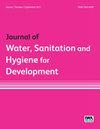印度的卫生权:实现什么?
IF 1.4
4区 环境科学与生态学
Q3 WATER RESOURCES
Journal of Water Sanitation and Hygiene for Development
Pub Date : 2023-06-01
DOI:10.2166/washdev.2023.248
引用次数: 0
摘要
在印度北方邦最近人工拾荒者的堕落背景下,妇女被迫接受子宫切除手术以有效地工作,本文调查了在印度实现卫生权的确切意义。它回顾了现有的文献,发现卫生设施作为一种基础设施的概念很狭隘,这影响了印度卫生设施作为权利的概念化。对环境卫生的有限了解影响了个人的宜居性结果,特别是那些生活在令人难以忍受的环境中的贱民拾荒者。该文件认为,鉴于Amartya Sen的正义观与人权框架的兼容性,对实现环境卫生作为一项权利的评估是通过运用其正义观来全面实现的。它涉及减少人类痛苦。它通过关注扩大人们的自由和过上有尊严生活的机会来评估个人福祉。本文章由计算机程序翻译,如有差异,请以英文原文为准。
The right to sanitation in India: Realisation of what?
In the context of recent degeneration in manual scavengers in Uttar Pradesh, India, where women are forced to undergo uterus removal surgery to perform efficiently at work, this article investigates what precisely realisation of the right to sanitation in India entails. It reviews the existing literature and finds that there is a narrow conception of sanitation as an infrastructure provision that influences the conceptualisation of sanitation as a right in India. The limited understanding of sanitation impacts the livability outcomes of the individuals, specifically the Dalit manual scavengers who are subjected to insufferable circumstances. The paper argues that the evaluation of the realisation of sanitation as a right is comprehensively achieved by deploying Amartya Sen's conception of justice, given its compatibility with the human rights framework. It concerns with the reduction of human suffering. It assesses individual well-being by focusing on expanding people's freedoms and opportunities to live a life of dignity.
求助全文
通过发布文献求助,成功后即可免费获取论文全文。
去求助
来源期刊

Journal of Water Sanitation and Hygiene for Development
WATER RESOURCES-
CiteScore
3.10
自引率
11.80%
发文量
58
审稿时长
16 weeks
期刊介绍:
The Journal of Water, Sanitation and Hygiene for Development is a peer-reviewed journal devoted to the dissemination of high-quality information on the science, policy and practice of drinking-water supply, sanitation and hygiene at local, national and international levels.
 求助内容:
求助内容: 应助结果提醒方式:
应助结果提醒方式:


